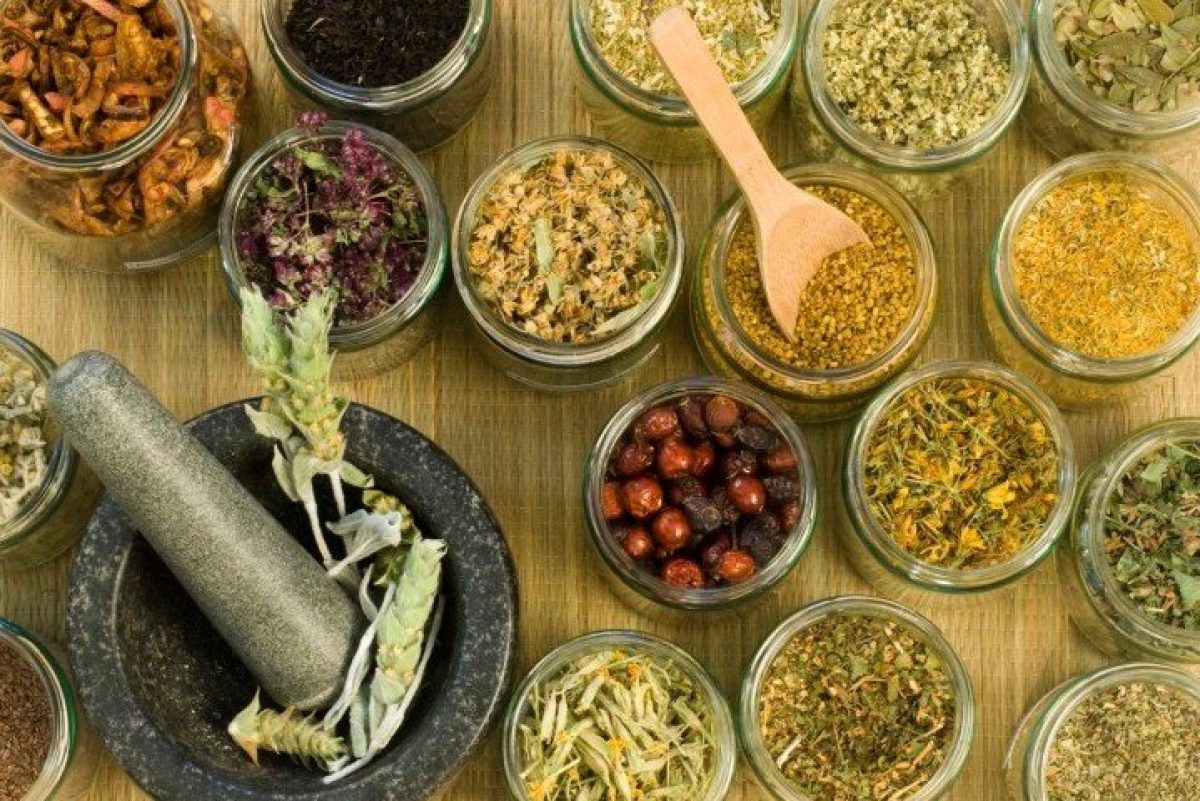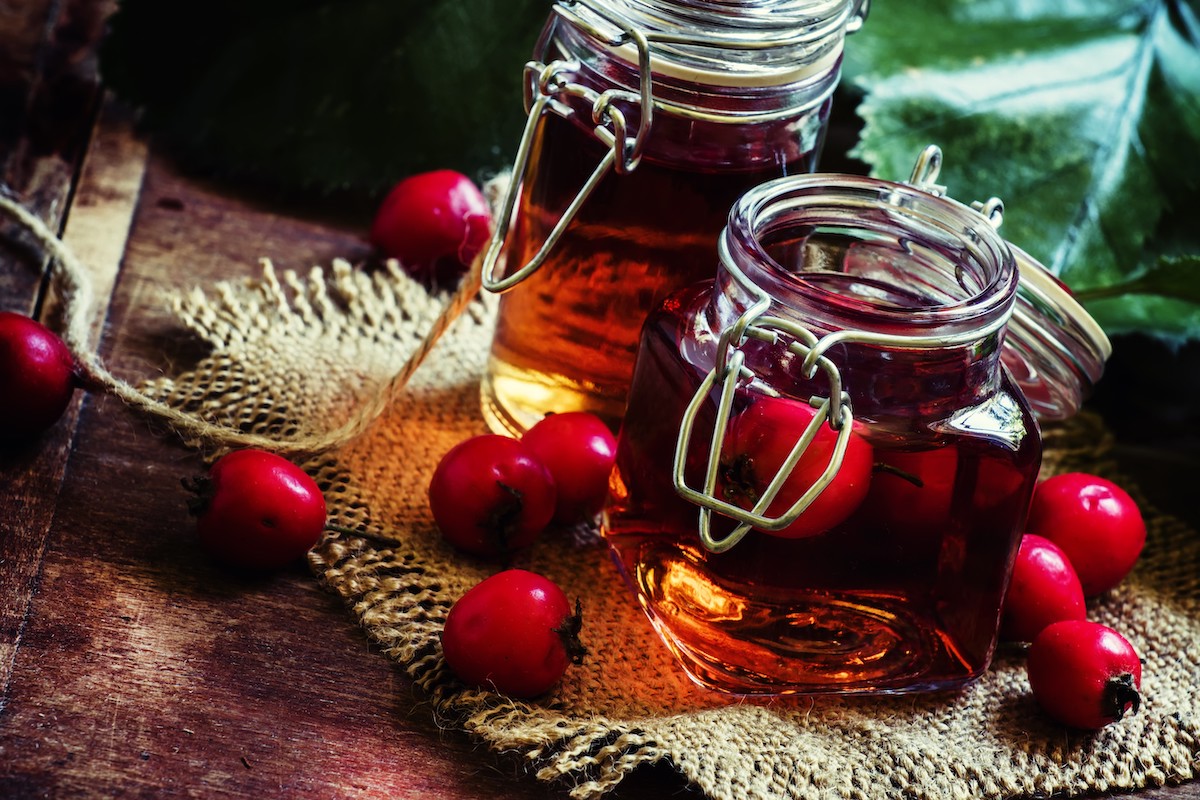We are now in late fall, and the days are becoming chillier and although Italy holds onto its fame as the homeland of coffee, in particular the espresso, for a few years now there is also a new custom going around and making its way in Italian homes: we are talking about herbal tea. The reason behind this shift is related to the more informed and health-oriented consumers who look for ways to stay healthy starting from what they drink, such as these herbal teas that come with many functional benefits. There are so many on the market: balsamic, relaxing, immunostimulating, digestive… there is literally something for everyone!

What are herbal teas or infusions?
Herbal teas or infusions are watery drinks obtained from one or more herbal drugs fresh or dried (herbs, spices, fruits, or other vegetable components), often flavored and sweetened. In other words, herbal teas exploit hot and/or cold water’s solvent effect to extract medicinal substances from plant-based sources of health-related interest.
Therapeutic herbal teas are included in the Farmacopea Ufficiale Italiana, the reference pharmacological code for our country. In the Farmacopea are listed the herbs or orher plant based parts with biological activity and the preparation method, infusion or decoction, in order to obtain the beneficial effect.
They contain:
- The drug or group of drugs from which one may want extract the active ingredients of health related interest, also called cardinal remedy or base remedy;
- Substances that help with the absorption of the active ingredient, called adjuvant remedy;
- Substances that improve the look and feel of the tea, also called complement;
- Elements able to improve the organoleptic aspects of the beverage, called correctors.

Differences between decoctions and infusions
Based on the methodology of preparation of herbal tea, we have the devotions and the infusions.
The decoction is a liquid preparation obtained by the plant based parts in the water, which contain one or more active ingredients, and bringing to a boil. The boiling continues for quite some time and the process, called decoction, is useful to extract the active ingredients from compact plant parts such as roots and peels.
In the infusion the boiling water is poured onto the herbs, which are not boiled together with the water. As opposed to the decoction, the infusion is great to extract active water soluble ingredients from softer plant tissues, such as aromatic herbs, flowers, leaves or buds. Furthermore, the infusion method is the best to extract volatile or thermolabile active ingredients that may be degraded by the prolonged heat of decoction.

3 fall winter ideas to prepare your herbal teas!
Balsamic herbal tea
Flu, cough and cold are the unwanted guests that usually show up when winter comes, but herbal teas can help us against these symptoms thanks to the expectorant and anti-inflammatory properties of plants.
Ingredients
- 15 g of eucalyptus
- 30 g of mauve
- 15 g of sage
- 15 g of mint
- 5 g of echinacea
Method: prepare the infusion with two tablespoons of this mix and put them in 400ml of boiling water, let it rest for about 10-15 minutes. After that, you can decide to drink it with or without sweeteners. If you do decide to opt for them, then use some honey.
Properties
The eucalyptus is useful for airways, to heal cough, sore throat and cold; mauve is a natural anti-inflammatory, it soothes both cough and sore throat; sage has a balsamic action and it is recommended for all inflammation of the oral cavity; mint has anti-inflammatory properties for sore throat and it is grown all over the Italian territory so it is very easy to find; the echinacea has immunostimulant properties.

Digestive herbal tea
Digestive herbal teas help to heal stomach related issues, acting mainly on the slowness of the digestive system and helping to eliminate air. These problems are often annoying and they come up often in the winter season due to the diet typical of the season which is more rich calories and fats.
Ingredients
- 25 g of gentian root
- 10 g of cinnamon
- 10 g of fennel
- 5 g of star anise
- 15 g of bitter orange peels
- 25 g of rhubarb
Method: put in infusion 5 g of the mix in 100 ml of water; let it boil for 5 minutes then turn off and leave it to rest. Sieve it and drink a small glass after the main meals.
Properties
The gentian foot is considered the best natural digestive: its bitter active ingredients stimulate the production of stomach acids; fennel fights bloating and cramps; rhubarb operates on the liver and in the intestine with a depurative and digestive effect. Fennel is grown all over Italy but in different times of the year according to the area: in the north of Italy the sowing happens in April and May, where there is a lower chance of late frosting; in the center and in the south of Italy on the other hand sowing can start already in February.

Relaxing herbal tea
Relaxing herbal teas are a great remedy against the tension and stress of the winter season. Thanks to the calming properties of these herbs this mix helps our body to relax healing also the frequent sleeping issue caused by stress.
Ingredients
- 10 g of linden
- 10 g of lavender
- 10 g of orange blossoms
- 15 g of valerian
- 5 g of camomile
- 30 g of lemon balm
- 20 g of passionflower
Method: pour a tablespoon of this mix in 100 ml of boiling water, leave it to rest for 10 minutes and sweeten it with linden honey or chestnut honey. Drink at night before going to sleep.
Properties
Linden has a sedative action and is often used in phytoterapy to combat insomnia; orange blossoms help to sleep; lemon balm is also useful to combat stress and this to rest better; passionflower helps with anxiety and insomnia; finally valerian has a relaxing action.

.Immagine di copertina: sprecomeno
